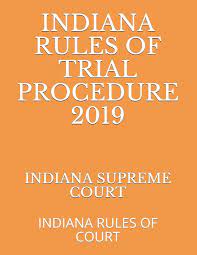You feel that a police officer, security guard, or possibly a store manager illegally arrested you. How can you tell if the arrest you were given was illegal? How can you file a lawsuit in court if you believe you have a case? We’ll go over the components of an unlawful arrest lawsuit, potential damages, and how to submit your claim to the appropriate court.
What is Unlawful Arrest?
Unlawful arrests are those that are made in defiance of municipal, state, or federal laws. It is legal to be arrested if:
- It is legally justifiable; and
- Everything is done the right way.
Arrests made arbitrarily have a wider definition. Included in it are arrests that violate both human rights standards and the law. By extension, this means that an arbitrary arrest might not be deemed unlawful by local courts.
Elements a Plaintiff Must Prove in an Unlawful Arrest Lawsuit
- The defendant in the unlawful arrest lawsuit intended to and
- Did imprison or hold the claimant
- The plaintiff knew that she was being held or confined.
- The plaintiff refused to give permission to be imprisoned or held, and
- The incarceration or custody was not warranted by the law.
Is an Unlawful Arrest Considered a Crime?
False incarceration or unlawful arrest are felonies in numerous states. However, it is quite improbable that a police officer detaining someone without a valid reason will result in criminal charges of wrongful arrest.
When an illegal arrest leads to criminal charges, the person prosecuted is almost always a private individual, such as a security guard or store employee. On the other hand, there are many cases where common people are accused of false incarceration without any kind of arrest. An illustration would be someone locking someone else in a room and not allowing them to escape.
Compensation and Additional Claims in an Unlawful Arrest Lawsuit
A civil lawsuit alleging unlawful arrest typically seeks the “remedy” of damages. Rarely, a judge may grant an injunction.
A successful plaintiff in the majority of false arrest instances is entitled to both special and general damages.
General and Special Damages
Special damages—also referred to as “economic damages”—are meant to cover out-of-pocket expenses such as medical bills, missed income, property damage, and the like.
Proof of these losses will be required. Obtain a letter detailing the missing wages from your employer. Refunds for any additional charges, such as bail bond fees or replacement or repair costs for lost, damaged, or destroyed property during your arrest, should be kept on file.
The goal of general damages is to fully compensate you for losses such as pain, suffering, and mental anguish. It is far harder to put a number on these “intangible” losses than it is on lost income or property damage. How can general harm be valued in money? Two methods that attorneys and insurance adjusters frequently employ are the multiplier method and the per diem method.
Because the multiplier technique uses the plaintiff’s medical bills to determine the value of general damages, it is not very effective in most circumstances where the only claim is false arrest. Medical costs are unlikely to be significant if the sole allegation is false arrest. To estimate general damages, you must apply the per diem technique.
Steps for Filing a Lawsuit for Unlawful Arrest
Usually, a false arrest lawsuit is not filed on its own. Likely, additional deliberate tort claims, negligence claims, and possibly claims based on the US Constitution will be made. The fundamentals of filing an unlawful arrest lawsuit will mostly depend on who you are suing and what allegations you have.
Let us separate the cases into two groups:
An unlawful arrest lawsuit filed only against private parties, as well as a false arrest lawsuit filed together with the government and the police, either with or without claims against private parties,.
For the reasons we’ve already discussed, we’re presuming that unlawful arrest is only one of the lawsuit’s multiple claims in each of these categories.
Lawsuit for Unlawful Arrests Against Private Parties
A quick summary of who to sue, where to sue, and what claims to include is provided below. But remember that you should get legal representation for the matter.
Where to Sue?
You should file a lawsuit in state court, usually in the court closest to the place of the arrest, in almost all cases involving one or more private parties.
Whom To Sue?
The arrest most likely happened in a restaurant, bar, nightclub, or retail establishment. To determine who to suit, you—or better yet, your attorney or their private investigator—will need to conduct some research. The accused parties may consist of:
- Every employee, bouncer, or private security guard who made or assisted in making the arrest
- the business where the individuals who made the arrest are employed, and
- the firm that, if it differs from the employers of the individuals who made the arrest, owns and runs the establishment where the arrest took place.
Depending on the circumstances and the allegations you make, you might also need to sue other individuals or businesses.
What to Sue For
As a general rule, all claims resulting from the case’s events must be included when filing a lawsuit. Put another way, you cannot break a lawsuit into several claims and then file several cases. This is referred to as “claim splitting,” and it is prohibited.
There’s a good chance your claim will involve more than one false arrest. You should likely file claims for other intentional torts, such as intentional battery and assault, as well as intentional infliction of emotional distress. You should file a negligence lawsuit if you want to incorporate allegations of negligence over inadequate supervision or training of the arresting officers.
Lawsuit for Unlawful Arrest Against Government and Police
Here is a quick rundown of the essential filing information in cases where the defendants are government agencies such as the county, city, or police.
Where is Sue?
You have to file a lawsuit in the state where the arrest took place, just like before. However, in this instance, you’ll almost definitely want to incorporate claims based on the US Constitution and federal law. Because of this, you should normally bring the case to the federal district court that is closest to you, even if there are private parties involved (such as someone who mistakenly detained you before the police illegally arrested you).
Whom To Sue?
In this case, as well, you have multiple defendants to choose from:
- All law enforcement personnel who participated in the arrest, as well as those who assisted with your processing, charging, or transportation, as well as those who took care of you during your incarceration.
- Every law enforcement organization that hires any of the officers involved. (In certain states, law enforcement organizations lack legal standing and cannot be sued. If so, they will be dismissed by the judge.)
- Any law enforcement official or agency engaged in the arrest serves each city or county.
- anyone from the private sector who was engaged.
What to Sue For
You will likely want to file lawsuits alleging that the police, the cities, and the counties you are suing violate the US Constitution. For example, since you are alleging that you were wrongfully arrested, you ought to file a Fourth Amendment claim for an arbitrary seizure.
You should also file further constitutional claims. The police likely searched you during the arrest, therefore, you should file a Fourth Amendment claim alleging that the search was illegal. Another Fourth Amendment argument would be made if the arrest was made with undue force by the police. You may have further constitutional claims.
Additionally, you should bring intentional tort claims against the arresting officers, such as false arrest, assault, battery, malicious prosecution, and intentional infliction of emotional distress. Finally, if private parties are also defendants, you will bring the same types of claims mentioned above against them. Consider adding state constitutional claims to your case. For instance, your state constitution offers protections against unlawful searches and seizures similar to those of the Fourth Amendment.
FAQs
What is an unlawful arrest in Nigeria?
Arrest in lieu, sometimes referred to as an arrest of the incorrect person, is forbidden by Section 7 of the ACJA. Arrest with ill intent or selfish benefit. An arrest was made using a warrant for arrest that was acquired by a police officer, providing the judge with false information.
In Florida, can I file a lawsuit for false arrest?
A civil rights action can be brought if the arrest was made based on a forged affidavit. Proving that your rights were infringed and that the fabrication was deliberate or the result of egregious negligence would be necessary for this kind of action to succeed.
What word does unlawful arrest mean in another context?
Misdemeanor charges are typically applied to wrongful arrests, which are also known as false imprisonment.
Conclusion
Unlawful arrest cases are extraordinarily complex for a variety of reasons, some of which we discussed above. Here are a few more justifications for why you should work with an attorney on your case.
Complexity: Litigating civil rights lawsuits against the government and police can be especially complicated. Typically, these defendants will battle you the entire time. However, cases involving these defendants are an exception to the general rule that most personal injury lawsuits settle. Most are either dismissed by the court for a variety of reasons or proceed to trial and result in a conviction for the accused.
The costs on the opposite side are: Even worse, the winning party in a federal civil rights lawsuit against the police, cities, and counties may sue the losing side for expenses and attorneys’ fees. Tens of thousands of dollars or more may be spent on fees and other expenses. In the worst situation, you could lose the lawsuit and have to pay the defendants a large amount of money.
Most attorneys who don’t focus on this type of case won’t take them on because of the high risks. To cut a long tale short, you should not handle a matter like this on your own.



